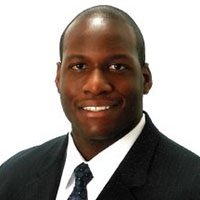Odessa Juvenile Law Lawyer, Delaware
Sponsored Law Firm
-
 x
x

Click For More Info:
-
Christofer C. Johnson, Esq.
1201 North Orange St Suite 501 Wilmington, DE 19801» view mapCriminal Defense Law Get The Support You Need For Your Case
Christofer C. Johnson, Esq. has a track record of successful case outcomes and provides legal counsel for a reasonable price.
800-941-4370
Not enough matches for Odessa Juvenile Law lawyer.
Below are all Odessa Criminal lawyers.
Elwood T. Eveland
✓ VERIFIEDAccident & Injury, Real Estate, Estate, Divorce & Family Law, Criminal
Elwood T. Eveland Jr. is a practicing lawyer in the state of Delaware specializing in Accident & Injury Law. Mr. Evelend received his J.D. from Widene... (more)
Christofer C. Johnson
✓ VERIFIEDDivorce & Family Law, Employment, Business, Accident & Injury, Criminal
Chris Johnson is a native of Philadelphia and graduated from the William Penn Charter School. He received an academic scholarship to the University of... (more)
 Christofer Johnson Wilmington, DE
Christofer Johnson Wilmington, DE AboutChristofer C. Johnson, Esq.
AboutChristofer C. Johnson, Esq. Practice AreasExpertise
Practice AreasExpertise


